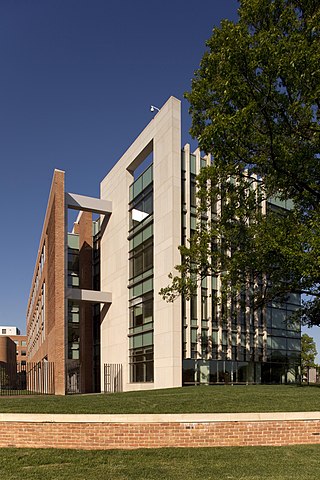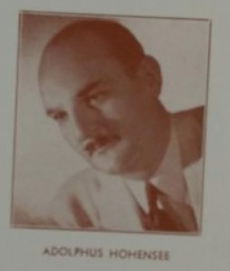Related Research Articles

The United States Food and Drug Administration is a federal agency of the Department of Health and Human Services. The FDA is responsible for protecting and promoting public health through the control and supervision of food safety, tobacco products, caffeine products, dietary supplements, prescription and over-the-counter pharmaceutical drugs (medications), vaccines, biopharmaceuticals, blood transfusions, medical devices, electromagnetic radiation emitting devices (ERED), cosmetics, animal foods & feed and veterinary products.

Vinegar is an aqueous solution of acetic acid and trace compounds that may include flavorings. Vinegar typically contains from 5% to 18% acetic acid by volume. Usually, the acetic acid is produced by a double fermentation, converting simple sugars to ethanol using yeast and ethanol to acetic acid using acetic acid bacteria. Many types of vinegar are made, depending on source materials. The product is now mainly used in the culinary arts as a flavorful, acidic cooking ingredient or in pickling. Various types are used as condiments or garnishes, including balsamic vinegar and malt vinegar.

A dietary supplement is a manufactured product intended to supplement a person's diet by taking a pill, capsule, tablet, powder, or liquid. A supplement can provide nutrients either extracted from food sources, or that are synthetic. The classes of nutrient compounds in supplements include vitamins, minerals, fiber, fatty acids, and amino acids. Dietary supplements can also contain substances that have not been confirmed as being essential to life, and so are not nutrients per se, but are marketed as having a beneficial biological effect, such as plant pigments or polyphenols. Animals can also be a source of supplement ingredients, such as collagen from chickens or fish for example. These are also sold individually and in combination, and may be combined with nutrient ingredients. The European Commission has also established harmonized rules to help insure that food supplements are safe and appropriately labeled.

Quackery, often synonymous with health fraud, is the promotion of fraudulent or ignorant medical practices. A quack is a "fraudulent or ignorant pretender to medical skill" or "a person who pretends, professionally or publicly, to have skill, knowledge, qualification or credentials they do not possess; a charlatan or snake oil salesman". The term quack is a clipped form of the archaic term quacksalver, derived from Dutch: kwakzalver a "hawker of salve" or rather somebody who boasted about their salves, more commonly known as ointments. In the Middle Ages the term quack meant "shouting". The quacksalvers sold their wares at markets by shouting to gain attention.

Herbal medicine is the study of pharmacognosy and the use of medicinal plants, which are a basis of traditional medicine. With worldwide research into pharmacology, some herbal medicines have been translated into modern remedies, such as the anti-malarial group of drugs called artemisinin isolated from Artemisia annua, a herb that was known in Chinese medicine to treat fever. There is limited scientific evidence for the safety and efficacy of many plants used in 21st-century herbalism, which generally does not provide standards for purity or dosage. The scope of herbal medicine sometimes includes fungal and bee products, as well as minerals, shells and certain animal parts.

Apple cider is the name used in the United States and Canada for an unfiltered, unsweetened, non-alcoholic beverage made from apples. Though typically referred to simply as "cider" in North America, it is not to be confused with the alcoholic beverage known as cider in other places, which is called "hard cider" in the US. Outside of the United States and Canada, it is commonly referred to as cloudy apple juice to distinguish it from clearer, filtered apple juice and hard cider.

Goji, goji berry, or wolfberry is the sweet fruit of either Lycium barbarum or Lycium chinense, two closely related species of boxthorn in the nightshade family, Solanaceae. L. barbarum and L. chinense fruits are similar but can be distinguished by differences in taste and sugar content.
Nutraceutical is a marketing term used to imply a pharmaceutical effect from a compound or food product that has not been scientifically confirmed or approved to have clinical benefits. In the United States, nutraceuticals are considered and regulated as a subset of foods by the Food and Drug Administration (FDA).
Bioidentical hormone replacement therapy (BHRT), also known as bioidentical hormone therapy (BHT) or natural hormone therapy, is the use of hormones that are identical on a molecular level with endogenous hormones in hormone replacement therapy. It may also be combined with blood and saliva testing of hormone levels, and the use of pharmacy compounding to obtain hormones in an effort to reach a targeted level of hormones in the body. A number of claims by some proponents of BHT have not been confirmed through scientific testing. Specific hormones used in BHT include estrone, estradiol, progesterone, testosterone, dehydroepiandrosterone (DHEA), and estriol.

Switchel, switzel, swizzle, switchy, ginger-water or haymaker's punch is a drink made of water mixed with vinegar, and often seasoned with ginger. It is usually sweetened with molasses, though honey, sugar, brown sugar, or maple syrup are sometimes used instead. In the U.S. state of Vermont, oatmeal and lemon juice were sometimes added to the beverage.

Paul Chappuis Bragg was an American alternative health food advocate and fitness enthusiast. Bragg's mentor was Bernarr Macfadden. He wrote on subjects such as detoxification, dieting, fasting, longevity, orthopathy and physical culture. Medical experts criticized Bragg as a food faddist and promoter of quackery.

Joseph Michael Mercola is an American alternative medicine proponent, osteopathic physician, and Internet business personality. He markets largely unproven dietary supplements and medical devices. On his website, Mercola and colleagues advocate unproven and pseudoscientific alternative health notions including homeopathy and opposition to vaccination. These positions have received persistent criticism. Mercola is a member of several alternative medicine organizations as well as the political advocacy group Association of American Physicians and Surgeons, which promotes scientifically discredited views about medicine and disease. He is the author of two books.

Apple cider vinegar, or cider vinegar, is a vinegar made from cider, and used in salad dressings, marinades, vinaigrettes, food preservatives, and chutneys. It is made by crushing apples, then squeezing out the juice. The apple juice is then fermented by yeast which converts the sugars in the juice to ethanol. In a second fermentation step, the ethanol is converted into acetic acid by acetic acid-forming bacteria, yielding cider vinegar. Acetic acid and malic acid combine to give this vinegar its sour taste.
Louis Cesare Lasagna was an American physician and professor of medicine, known for his revision of the Hippocratic Oath.

Benjamin Gayelord Hauser, popularly known as Gayelord Hauser, was an American nutritionist and self-help writer, who promoted the 'natural way of eating' during the mid-20th century. He promoted foods rich in vitamin B and discouraged consumption of sugar and white flour. He rose to fame as a self-help author, popular on the lecture and social circuits, and was nutritional advisor to many celebrities.
Numerous governmental and non-governmental organizations have criticized the U. S. Food and Drug Administration for alleged excessive and/or insufficient regulation. The U.S. Food and Drug Administration (FDA) is an agency of the United States Department of Health and Human Services and is responsible for the safety regulation of most types of foods, dietary supplements, drugs, vaccines, biological medical products, blood products, medical devices, radiation-emitting devices, veterinary products, and cosmetics. The FDA also enforces section 361 of the Public Health Service Act and the associated regulations, including sanitation requirements on interstate travel as well as specific rules for control of disease on products ranging from animals sold as pets to donations of human blood and tissue.

DeForest Clinton Jarvis was an American physician from Vermont. He is best known for his writings on the subject of folk medicine. He recommended a mixture of raw apple cider vinegar and honey that has variously been called switchel or honegar, as a health tonic. He promoted the use of vinegar to keep the acidity of the body more acidic than alkaline, which he believed treated medical problems like burns and varicose veins.
The history of early food regulation in the United States started with the 1906 Pure Food and Drug Act, when the United States federal government began to intervene in the food and drug businesses. When that bill proved ineffective, the administration of President Franklin D. Roosevelt revised it into the Federal Food, Drug and Cosmetic Act of 1937. This has set the stage for further government intervention in the food, drug and agricultural markets.

Adolphus Hohensee was a naturopath, fraudulent nutritionist and quack from the twentieth century.
References
- ↑ The House Vermont Curry Mystery. Just Hungry.
- ↑ Darlington, Gail; Gamlin, Linda. (1998). Diet Arthritus. Vermilion. pp. 399–400. ISBN 978-0091816599
- ↑ Kleinfeld, Vincent A; Kaplan, Alan H. (1965). Federal Food, Drug, and Cosmetic Act: Judicial and Administrative Record, 1961–1964. Commerce Clearing House. pp. 88–90
- ↑ Barrett, Stephen; Herbert, Victor. (1994). The Vitamin Pushers: How the "Health Food" Industry is Selling America a Bill of Goods. Prometheus Books. p. 323. ISBN 978-0-87975-909-4 "D. C. Jarvis, M.D. (1881–1966) wrote that body alkalinity was the principal threat to American health and that honey and apple cider were antidotes. False claims in his book were the basis for an FDA seizure of a product called Honegar."
- ↑ Lasagna, Louis. (1962). The Doctors' Dilemmas. Harper. p. 306